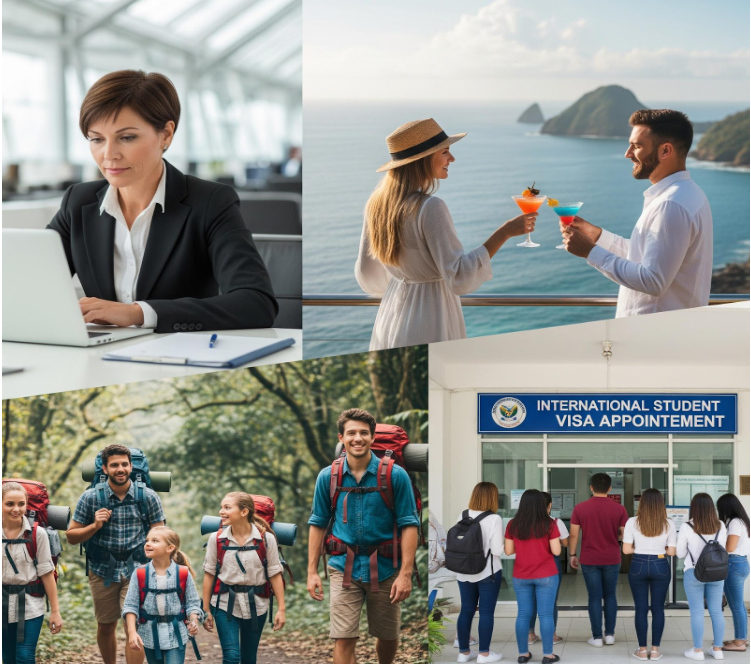How to Grow as a Travel Consultant: Real Career Tips That Actually Work
- BTW Group
- Jul 31, 2025
- 3 min read

Table of Contents
Let me be honest—when I first started looking into the travel consultant role, I thought it was just about booking flights and hotels. But once I dug deeper, I realized the job has evolved into something way bigger. Today, it’s about planning, advising, problem-solving, and using tech tools smartly. And if you're like me—thinking long-term, aiming to grow—then it’s time to treat this not just as a job, but as a real career path.
Before thinking about promotions or salary hikes, I’ve learned that mastering the basics is non-negotiable. That means being comfortable with:
GDS systems like Amadeus, Sabre, or Galileo
Understanding visa rules and embassy procedures
Knowing how to plan an itinerary and price it smartly
Being familiar with airline, hotel, and insurance policies
But don’t stop there. Dig into stuff like:
How post-pandemic travel has changed
Unique or less-traveled destinations
Country-specific entry/exit rules
It shows you're not just doing the job—you actually understand it.
Step 2: Soft Skills Are the Real Power Tools
Technical skills might help you get the job. But what really makes you stand out? Soft skills. I’m talking about:
Clear communication and good listening
Staying calm when clients panic
Handling complaints without losing your cool
Keeping track of a hundred small details without messing up
If you want to grow in any service-based career, how you handle people matters more than you think.

Step 3: Keep Learning, Always
In every industry (especially travel), the people who grow fastest are the ones who keep learning. Some helpful certifications/courses I found:
IATA Travel & Tourism certifications
CRM or sales training (especially useful if you're client-facing)
Visa or immigration training workshops
Even a basic course on international geography or currencies helps
Many good companies (like BTW Group, from what I’ve seen) offer in-house training and upskilling support. So ask your employer—or invest in yourself if you're freelancing.
Step 4: Learn the Tech That Makes Work Easier
Let’s be real—technology is not optional anymore. You need to be comfortable with:
GDS platforms (Amadeus, Sabre, Galileo)
CRM software for managing client data
Booking engines, fare aggregators, etc.
Even tools like Google Workspace, Notion, or Trello help in planning
Learning these doesn’t just make you faster—it makes you more reliable and professional.
Step 5: Focus on a Niche
Here’s a tip I wish someone told me earlier: Don’t try to be everything to everyone.
If you specialize in one area, you become the go-to person. Some niches to consider:
Business travel
Destination weddings
Wellness or medical tourism
Group tours, student visas
Eco or luxury travel
When you niche down, you become valuable, not just available.
Step 6: Network Like Your Career Depends on It (Because It Does)
Even if you're great at your job, opportunities won’t always find you. You need to put yourself out there:
Join travel and career-focused LinkedIn groups
Go to events or webinars (many are free!)
Talk to experienced people—ask questions
Don’t be shy about showcasing your work or success stories
Trust me, people remember those who show initiative.
Thinking of Applying Somewhere?
If you're serious about growth, look for companies that invest in their people. One company I came across—BTW Group—seems to offer:
Skill-based promotions (not just time-based)
Real exposure to travel cases, not just theory
A chance to work on global cases
Internal mentorship (which is rare these days)
Check them out at 👉 btwgroup.co/careers

Comments